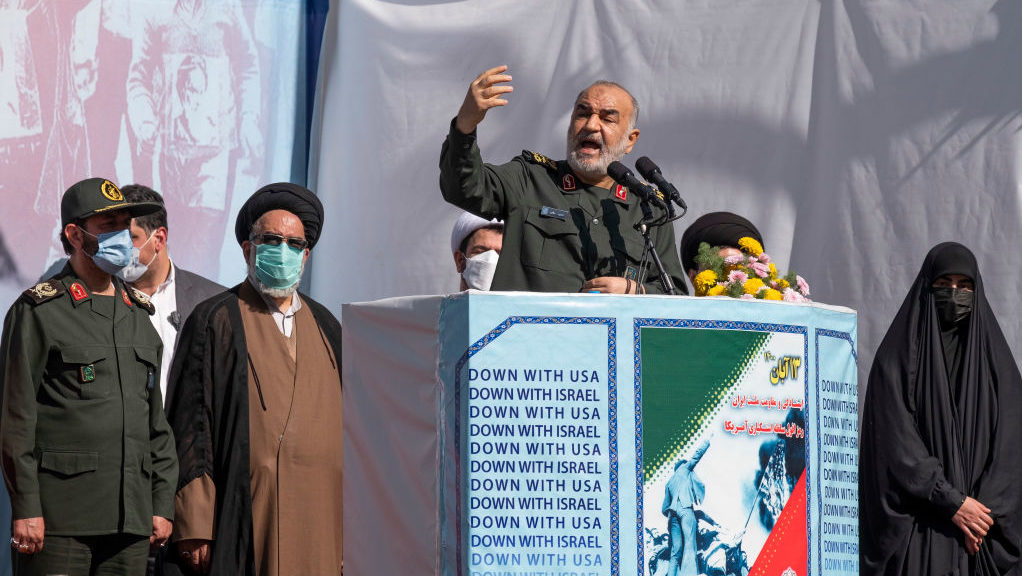New Faces and New Fears in Tehran
Alsharq Al-Awsat, London, November 3
What do you do when you feel an urge to do something but, at the same time, you’re embarrassed about doing it? This is the exact question that the Supreme Leader of the Islamic Republic of Iran Ayatollah Ali Khamenei faced this week, as he contemplated how to deal with one of his annual rituals celebrating the seizure of the US Embassy in Tehran and the taking of US diplomats hostage on Nov. 4, 1979. During the eight-year tenure of President Hassan Rouhani, the celebration of this occasion mellowed and turned into a small, symbolic gathering at the site of the old embassy, consisting of a few camera shots taken for State TV. In the past two years, in particular, many of the prominent elements that have always been associated with such a celebration have disappeared. For example, the annual “A World Without America” symposium, which for decades has been attended by anti-American professionals from all over the world (including from the United States itself), was completely removed from the program. The likes of Louis Farrakhan, Oliver Stone, Sean Penn and other self-hating Americans weren’t invited to make their annual pilgrimage to Tehran. Similarly, Iranian readers were spared another translation of Noam Chomsky’s latest hate speech against the United States. Among the other missing events was “The End of Israel” symposium that brought together Holocaust deniers from all over the world, and the accompanying international antisemitic cartoon exhibition. However, with the rise to power of President Ebrahim Raisi, there was widespread expectation that some of these vitriolic rituals would be revived. Surprisingly, however, this did not happen. Even stranger, it seems as if the new Iranian leadership chose to reduce the annual celebration even more. Officials tried to do this in several ways. Among them was an attempt to attach other slogans to the “November 4th events” that were supposed to celebrate “the humiliation of the American Great Satan.” Among the new names given to the events were: “the anniversary of Imam Khomeini’s Exile” in 1964 (even though this happened on the 5th of November; not the 4th). Another title was the “day of the massacre perpetrated by the Shah against primary and secondary school students and children” in 1976, although nothing like that happened at all. It is clear that Raisi is almost as determined as his predecessor to tone down his government’s anti-American rhetoric. The question is why? After all, a large part of the current regime’s discourse revolves around the claim that the previous government abandoned its Jihad against the “Great Satan” in exchange for empty promises from former President Barack Obama. One explanation is that the new regime believes that the so-called “Great Satan” has already been significantly weakened, as was clearly evident in its recent evacuation from Afghanistan. According to Ayatollah Tayeb, the political-religious commissar of the Revolutionary Guards, the United States today is like “the carcass of a dead donkey that doesn’t even need to be skinned.” However, such arrogant and ostentatious remarks often compensate for real fear. In this context, the first fear is that the Biden administration may not be keen to repeal the policy of “maximum pressure” pursued by former President Donald Trump, which pushed the Islamic Republic to the brink of bankruptcy. Another fear is that Biden, even if he wanted to, might not be able to lift enough sanctions on Iran, especially since lifting most sanctions requires the approval of the US Congress, which Biden cannot take for granted. Another concern is that Biden may have given Israel the green light to carry out “limited, but decisive action” against Iran’s nuclear sites. Such a move would force the regime to cross the red line it has adhered to for four decades by providing a real response to military action against it. Accordingly, Biden’s next step will be decisive. If the president gives in too easily, he may breathe new life into the demons of “old Tehran.” If he chooses to blow out empty statements, he may miss an opportunity to lend a helping hand to those seeking real regime change in Tehran. – Amir Taheri (translated by Asaf Zilberfarb)


